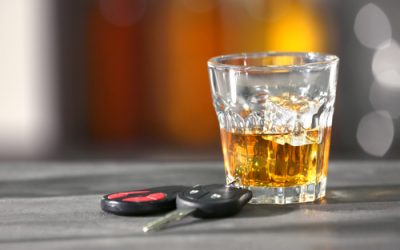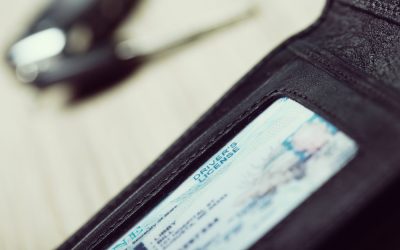
California prosecutes driving under the influence (DUI) and hit-and-runs harshly. What is the penalty for a DUI hit-and-run in California? Drivers who leave the accident scene after striking another vehicle could face years of jail time, fines, and the loss of their license.
You can discuss these severe penalties in more detail with a Los Angeles DUI lawyer. You can also focus on protecting your future with a defense lawyer. Find out more about your options by calling or completing our online contact form.
What Are the Penalties for a California Hit-and-Run Accident?
California does not have a specific DUI hit-and-run charge. Instead, a driver will likely face multiple charges. These crimes have different legal standards and varying penalties.
How Do the Penalties Overlap for a Hit-and-Run DUI Charge?
The penalties for a hit-and-run or DUI charge vary considerably. The extent of punishment greatly depends on the circumstances of the crime and whether the charges are misdemeanors or felonies.
For a hit-and-run charge, a driver may face:
- Fines ranging from$1,000 to $10,000
- Up to four years in prison
- Possible restitution to victims left injured
Driving under the influence of drugs or alcohol can lead to:
- Fines up to $1,000
- Up to three years in jail
- Suspended license
- DUI classes
A criminal defense lawyer can explain these penalties in more detail.
If Convicted, Are the Sentences Concurrent or Cumulative?
A DUI or hit-and-run charge can lead to a misdemeanor or felony arrest by itself. When the cases overlap, the accused can face concurrent or stacked penalties.
Concurrent Penalties
Concurrent charges mean that if the court convicts the defendant of multiple charges, the defendant may serve all sentences simultaneously. For example, suppose the court convicts a driver of fleeing the scene of an accident and sentences them to one year in prison.
In addition, the court convicts the driver of a DUI and sentences them to a year in jail for drunk driving. A concurrent sentence will mean the defendant will serve a single year in prison.
Cumulative Penalties
Stacked, or cumulative, sentences mean the defendant will serve one sentence at a time. In keeping with the above example, the defendant would serve the hit-and-run sentence first, then the DUI sentence for a combined two years in prison.
If you are facing multiple charges after a DUI hit-and-run arrest, speak to a DUI defense lawyer in Los Angeles immediately. The sooner an experienced attorney can get involved in your case, the greater the chance of mitigating the damage and mounting a successful defense.
Your lawyer can also tell you more about the penalty for DUI hit-and-runs in California.
What’s a California DUI Hit-and-Run?
A DUI hit-and-run accident in California is unique. In essence, a driver has committed two crimes. On the one hand, it is illegal to leave an accident scene. On the other hand, driving under the influence of drugs or alcohol is strictly prohibited.
If arrested for a California DUI hit-and-run, you may incur a combination of damaging charges.
What’s a Hit-and-Run in California?
California’s laws on vehicle collisions require you to stay at a crash scene. Motorists who leave the scene may face misdemeanor or felony charges. Drivers have to stop if a traffic accident causes property or vehicle damage.
In addition, they are responsible for exchanging contact information and insurance cards and calling the proper authorities. Failing to stop at the scene and report the collision is considered a misdemeanor hit-and-run. If a traffic accident causes bodily injury or death, leaving the scene will qualify as a felony hit-and-run.
According to the California Highway Patrol’s Report of Fatal and Injury Motor Vehicle Traffic Collisions, hundreds of thousands of people sustain injuries every year. Even if a person suffers only minor injuries, if the driver flees the scene of an accident, they will likely be charged with a felony hit-and-run.
What’s Driving Under the Influence (DUI)?
A motorist can be charged with a DUI under CA Vehicle Code 23152 (a) if they have been drinking or using drugs while operating a vehicle. If a driver is stopped and has a BAC (blood alcohol concentration) of 0.08% or more, they are considered legally intoxicated.
In addition to illegal drugs, many legal drugs and over-the-counter medications can lead to a DUI arrest. For example, driving under the influence of marijuana or a medication with a sleep aid is prohibited. Drivers may suffer reduced reaction times and the inability to focus on the road.
In most cases, the court treats driving under the influence of drugs or alcohol as a misdemeanor. However, a few circumstances can lead to a felony DUI charge. For example:
- If the driver suspected of driving under the influence causes the injury or death of another
- If the driver has a certain number of prior DUI convictions
- If any other aggravating circumstances warrant a harsher DUI charge
When a motorist leaves the scene of an accident and has been driving under the influence of alcohol or drugs, the penalties are often severe, including months in jail or even years of incarceration.
You may face harsher charges for driving under the influence of alcohol or drugs and causing injury.
Are There Legal Defenses to a Hit-and-Run DUI Accident in California?
After an arrest for a DUI hit-and-run collision, an effective defense is critical to protecting your rights, reputation, and future prospects. A Los Angeles DUI attorney can represent your best interests and mitigate the adverse effects of criminal charges.
Some common legal defense tactics include the following:
Proving You Weren’t Under the Influence
Establishing that you were not driving under the influence can work with a defense against the hit-and-run charge. In some cases, law enforcement may not have strong enough evidence to prove you were driving while impaired at the time of the accident.
A criminal defense attorney can discuss this option if you face misdemeanor or felony charges.
Proving Someone Else Was Driving
In a hit-and-run accident, law enforcement will generally identify the vehicle involved in the incident, not the driver. Unless there is camera footage or strong evidence linking you to the driver’s seat, this may be an effective defense.
Proving the Police Arrested You Unlawfully
One of the strongest defenses to both a DUI charge and a hit-and-run charge is proving the police violated your constitutional rights. An unlawful arrest may include an illegal search, failure to establish probable cause, failure to inform you of your rights during the arrest, and many more.
Proving You Didn’t Know About the Accident
Not every hit-and-run accident is a major collision. Sometimes, a car merely bumps into another in a parking lot. If a lawyer can establish that you were unaware of the motor vehicle accident and subsequent property damage, the hit-and-run charge may be able to be dropped.
Learn More About DUIs and Hit-and-Run Charges
What is the penalty for a DUI hit-and-run in California? Typically, these charges result in fines, incarceration, and license restrictions. You can learn more about each offense when you call or complete our online contact form.






